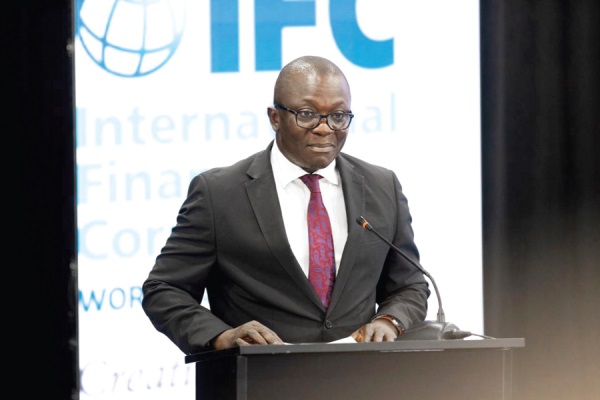The government will trade all recovered grains under the second phase of the Planting for Food and Jobs (PFJ) programme through the Ghana Commodities Exchange (GCX).
This will ensure that the grains recovered are stored properly to reduce post-harvest losses, sold at the right prices through the government formed price discovery mechanism while buyers are given good quality and right quantity of grains they purchase.
In furtherance to this, the government is keen in ensuring that commodity trading in Ghana is done in a structured manner.
The Minister of Food and Agriculture, Dr Bryan Acheampong, who disclosed this last Wednesday at the auditorium of the Africa Trade House in Accra, added that the initiative would give farmers, bankers and insurers a wide spectrum of options and opportunities when involved with the commodity.
“The GCX platform will ensure that the grains recovered are stored properly to reduce post-harvest losses that the grains are sold at the right price through the price discovery mechanism and buyers are given good quality and right quantity for the grains they purchase,” he noted.
At the inaugural Ghana Commodities symposium held at the Trade House to mark the fifth anniversary of the GCX, the sector minister noted that farmers feared volatility of prices, among other challenges, hence the GCX existed to assure both farmers, banks and other stakeholders of a properly structured eco-system to ply their trade and do business.
“The ministry will establish an input credit system that entails land, seeds, fertiliser that will enable produce of farmers to be purchased and stored in the GCX which will be subsequently traded,” he noted.
Symposium
The event served as a momentous occasion to reflect on the remarkable advancements the exchange had achieved in revolutionising commodity trading through structured markets over the past five years.
It was attended by industry experts, policymakers, stakeholders and esteemed guests who provided a platform for insightful discussions on the evolution of commodity trading.
Participants had the opportunity to delve into the challenges being faced in order to strategise for the future trajectory of the commodity trading sector.
GCX plays a critical role
The CEO, GCX, Mrs Tucci Ivowi, revealed that the exchange had come to stay, with a core mission of working with state agencies to boost access to markets and contribute to the economic growth of the country.
“As we chart the course for the future, sustainability remains a central tenet of our mission. We look forward to working with Government agencies in boosting access to markets and contributing to sector and economic growth, as much as we look forward to strengthening policy ties through a strong collaboration with the private sector.”
She added that as the exchange embarked on it next phase, it remained committed to driving innovation, fostering collaboration, and catalyzing positive change in the commodity trading landscape.
“The exchange looks forward to continuing its transformative work, delivering value to stakeholders, and contributing to the sustainable development of Ghana's economy,” she said.
She affirmed that her outfit would continue to play a major role in the country’s agricultural sector to ensure food security and affordability in the country.
“It is important to acknowledge the critical role the Ghana Commodity Exchange plays in advancing the Government's ambitious agenda to modernise the agricultural sector—a cornerstone of our nation's quest for food security, employment creation and poverty alleviation.
GCX sits in a privileged position at the intersection of trade, agriculture, technology and financial services. This is a core driver to bridging the gap between the youth and agriculture, agribusiness is a goalpost for many more people than before.” she noted.
